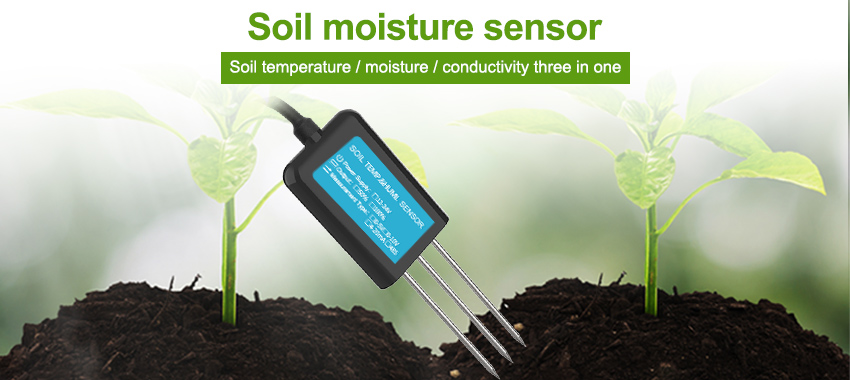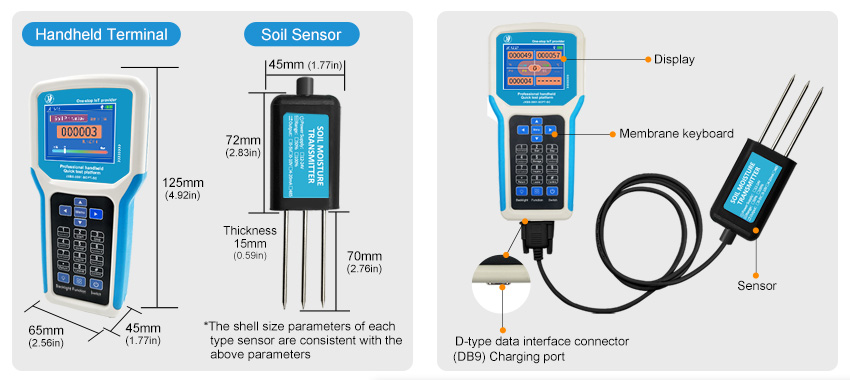Irrigation Management – Soil moisture Sensor unit

The soil moisture sensors unit adopts the international new generation of FDR measurement method, the accuracy is less than 3%. The soil moisture sensor unit adopts electromagnetic non-contact measurement method. This soil moisture sensor does not drift over time, improving product stability and extending service life.
Farmers are often faced with the challenge of irrigating fields adequately and efficiently. Soil hydraulic properties often lead to poor irrigation management and suboptimal yields.
Monitoring soil moisture is a key way to help farmers match when water supplies are reduced and unreliable.
According to the actual soil water condition and crop water utilization, irrigation applications are carried out.
Soil moisture monitoring can enable plants to fully absorb water after infiltration and irrigation in the soil root zone. It makes irrigation easier. Irrigation determines when to irrigate and how much water to apply to avoid crop dehydration.

Effective irrigation management increases yield and grain quality, saves water and energy, and reduces nutrient loss. One of the easiest and most effective ways to improve irrigation efficiency is to implement soil sensor technology in irrigation scheduling.
The soil moisture sensor can reflect soil conditions in real time, measure the water absorption and irrigation indicators of field or potted soil, and monitor the dynamic changes of soil moisture (including soil moisture and groundwater). It can grasp the soil condition in real time through the remote platform, make the data into a table, and support the computer to receive remote cloud viewing data.